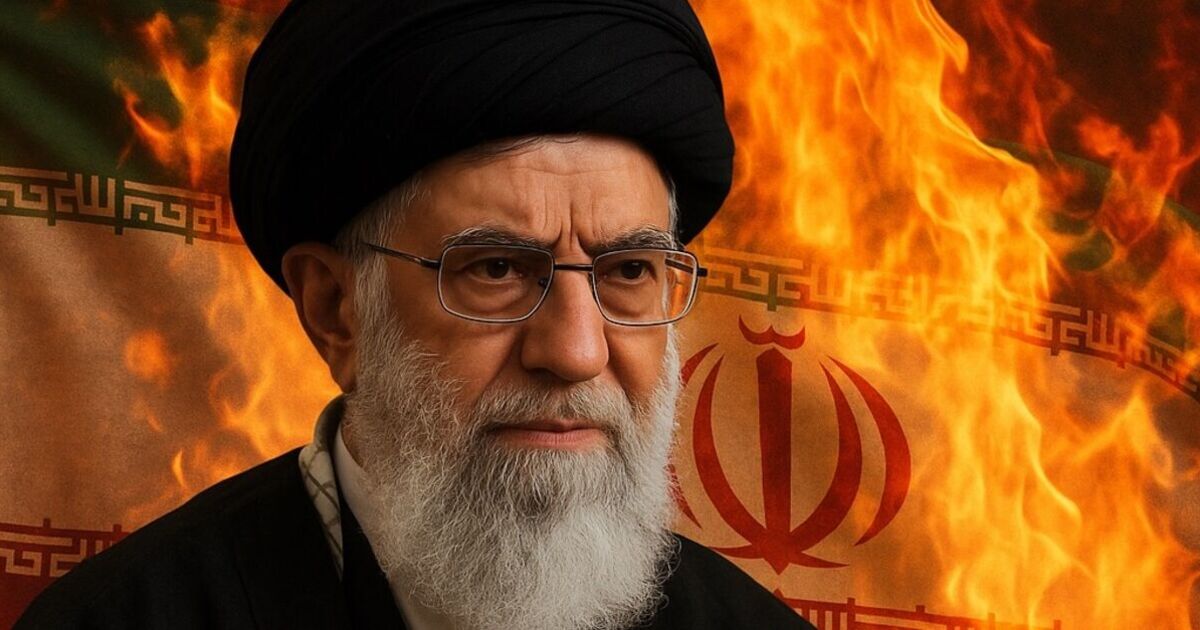For the first time in half a century, Iranians are openly discussing the prospect of regime change. As Israeli airstrikes continue to hit Tehran and other major cities, anger at the Islamic Republic – long simmering – is now being voiced aloud by ordinary citizens., not just online but in homes, streets and even cars fleeing the capital.
Navid, a 30-year-old Tehrani, fled the capital this week with his family after enduring three days of bombing. His account came amid reports that Supreme Leader Ayatollah Ali Khamenei had taken shelter with his family in a fortified bunker – a sign of how seriously the regime views the threat.
“Everyone is leaving,” he said.
“We waited until Monday, but it was a very difficult two days since Israel started to bomb.
“We couldn’t sleep. We couldn’t function. The regime can’t even sound warning sirens any more. All we heard were explosions across the city. After the first bombs fell on Friday, our only thought was – will it be us next?”
Navid’s relatives in the north of the country had been pleading with him to leave.
He was reluctant at first, knowing his self-employed marketing job was the family’s only stable income. His father is retired, and his mother does not work. But the threat became impossible to ignore.
“It was a tough decision,” he said.
“When we did leave, it took almost eight hours to get out. The streets were rivers of cars.
“Luckily I had filled the car with petrol on Thursday, so we didn’t have to queue for that as well.”
Like many in his generation, Navid’s disillusionment with the Islamic Republic is deep and longstanding.
But now, he said, something has changed.
“We have always been unhappy with the regime. The Islamic Revolution was a big mistake and most people who took part in it regret it now. Most Iranians want it gone,” he said.
“Most Iranians do not have any problems with Israel and they want to live in peace with every country. The regime is not the representative of Iranians.
“We were already angry about unemployment, inflation, corruption, the compulsory hijab, and the regime spending our country’s wealth on Syria, Lebanon, Iraq and Palestine.
“We have all been suffering from this situation. It’s been unbearable. The cost of life is much higher than people’s incomes, even for those who do work.”
He listed soaring costs of basic goods – eggs, meat and fuel – as evidence of an economic system that no longer works.
“But now there’s a real feeling that change is coming. They can’t even protect their own citizens. Their weakness is exposed for all to see,’ he said.
“We are talking about this more openly. Of course it’s all over social media, but even in public now, we’re discussing change.
“We want a referendum. We want democracy.”
Navid says many people are talking about Reza Pahlavi, the son of Iran’s last Shah.
“I’ve heard from my father and from many others that the Shah was a good man who tried his best for the Iranian people,” he said.
“For me, as long as Reza Pahlavi brings democracy, that’s okay.”
He knows the days ahead will be difficult.
His family is now living off his savings, with no clear plan for the future.
“It’s worrying, but I don’t think this war will last much longer,” he said.
With Supreme Leader Ayatollah Ali Khamenei reportedly hiding in a bunker in Lavizan, northeast Tehran, with his family, Navid’s view is far from unique.
Megan Sutcliffe, a senior analyst with the Sibylline strategic risk group, said the mood inside Iran had shifted significantly.
“Anti-government sentiment has taken on a new flavour in the past few days,” she said. “This is no longer just about the regime doing things people disagree with – enforcing morality laws or funding proxies abroad. It is now about the regime’s inability to perform the basic functions of a state.
“It can’t protect its people. It can’t even warn them of incoming threats. Even in lower-capacity states like Iraq, there are at least functional warning systems.
“Israeli strikes are now hitting all over the country. Yesterday they struck Mashhad Airport in the far east. There is a growing sense that nowhere is safe.”
But she cautioned against expecting mass protests just yet.
“People are afraid for their safety. They are not going to be marching in the streets under these conditions,” she said.
“There is also no real, unified opposition within Iran. There’s been discussion online about a return to monarchy and about Reza Pahlavi. But even within the pro-monarchist camp, there are divisions and debate. Unified support for any one individual or system is going to be a stretch at this point.”
Still, for many Iranians, the sense that the regime’s authority is crumbling – that something long unthinkable is now possible – is a powerful and galvanising shift.
But Navid remains hopeful.
“I think there will be change soon,” he said.
“And that thought, after all these years, is what keeps us going.”

